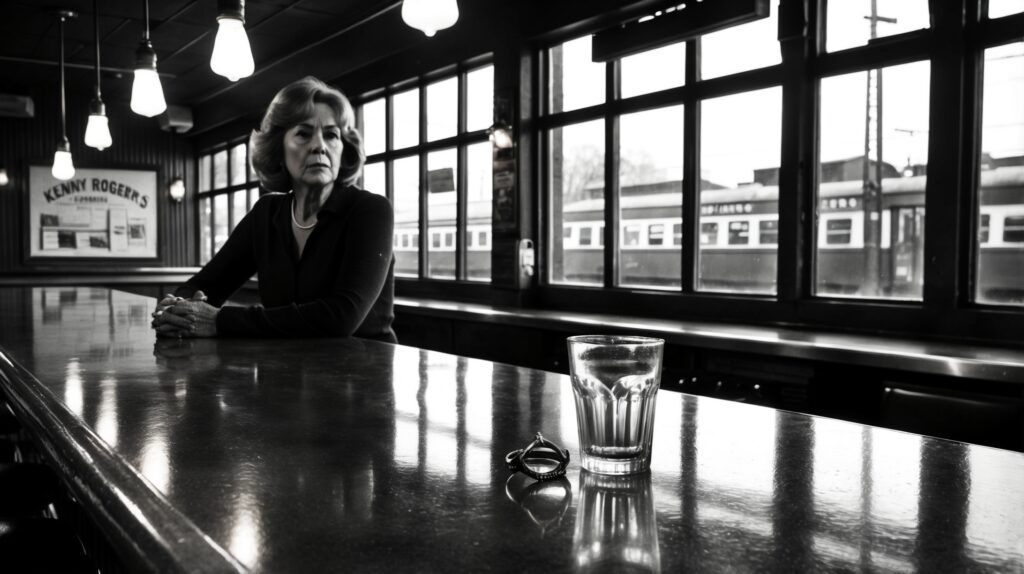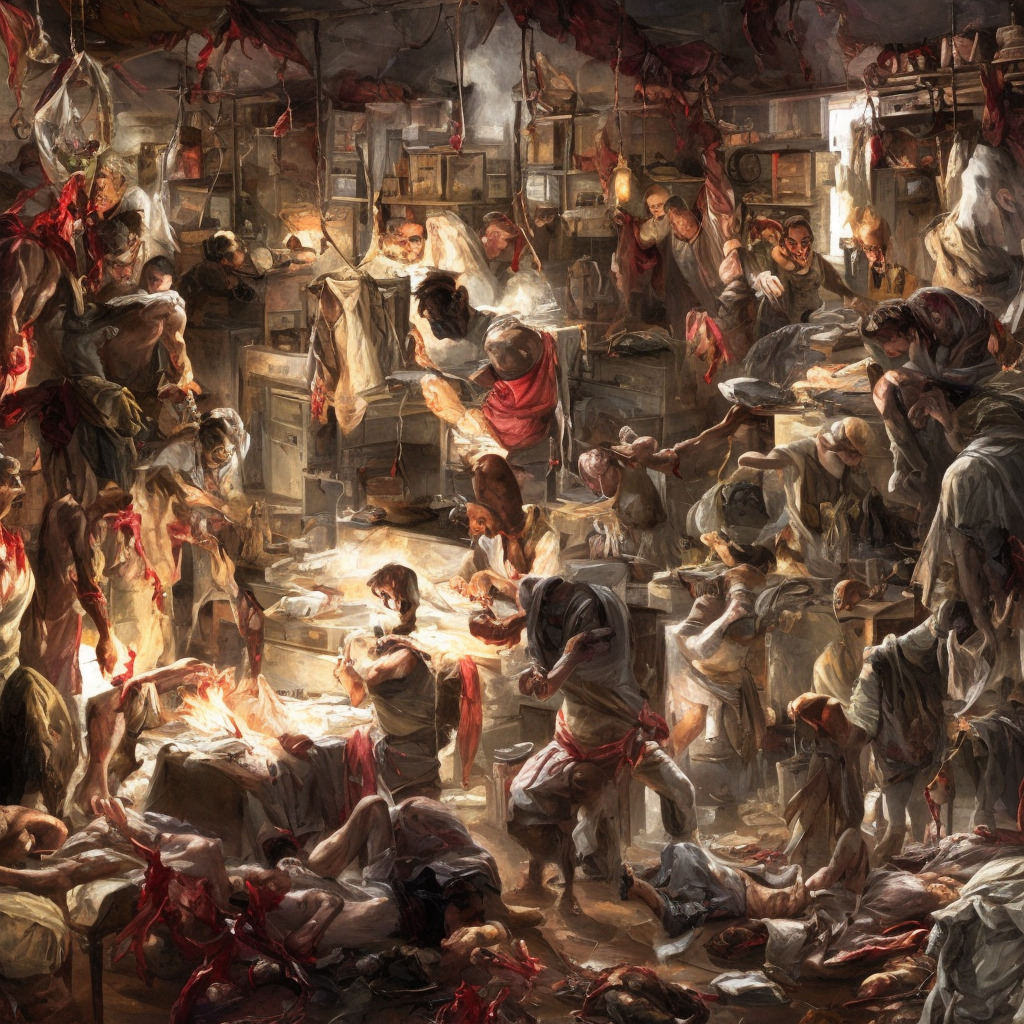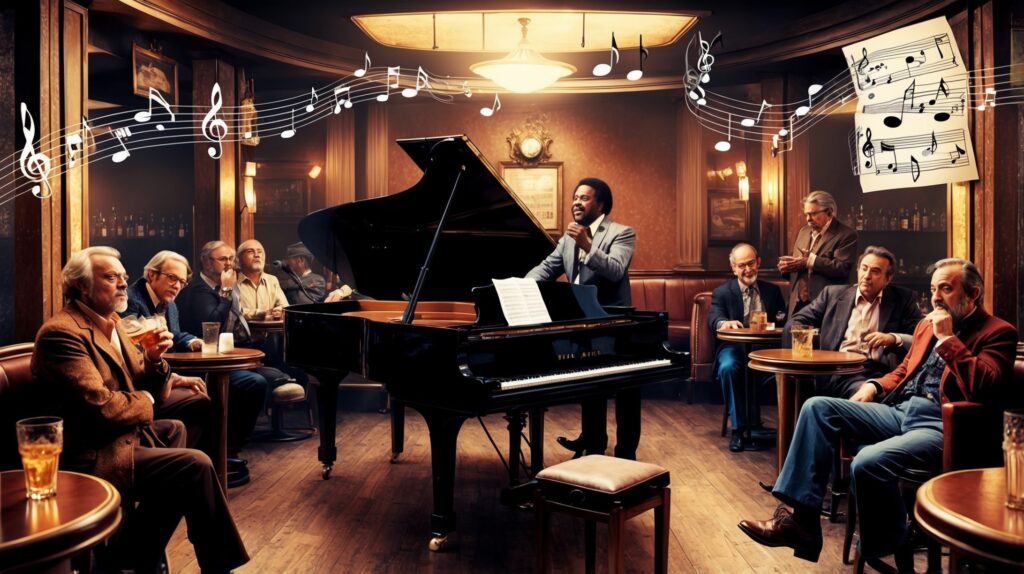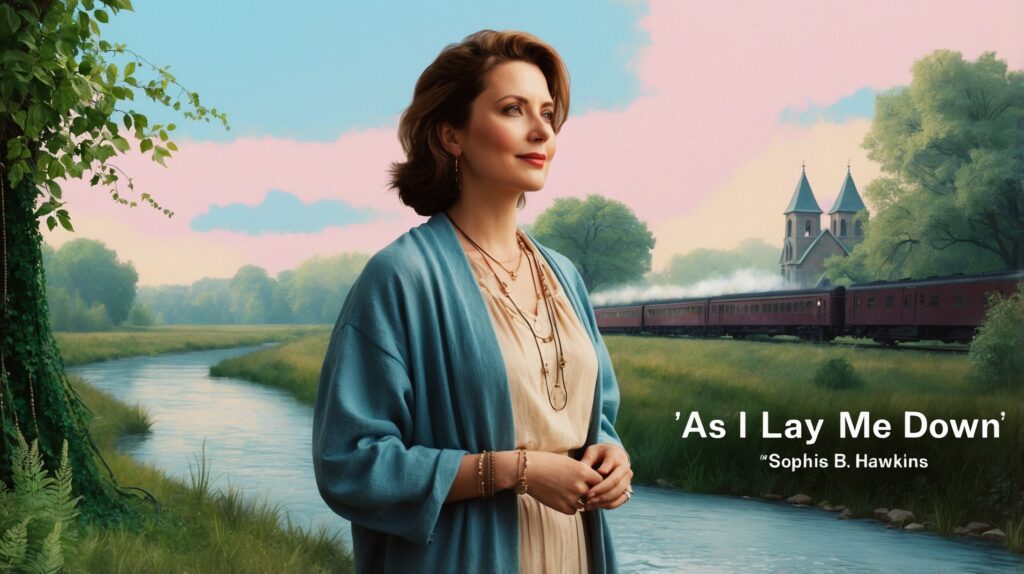The Journey of Kenny Rogers: A Country Music Icon
Explore Kenny Rogers’ journey, from his early beginnings to his profound impact on country music, with a focus on the pivotal era of ‘Lucille.’

Kenny Rogers, a titan in the music industry, became synonymous with country music’s global embrace. ‘Lucille,’ released in 1977, marked a turning point in his prolific career. Its vivid storytelling and authentic emotion resonated deeply with audiences, solidifying Rogers’ status as a household name. Years before the song’s meteoric rise, Rogers had already begun building a diverse repertoire that straddled various musical genres, an indicative glimpse into his future superstar status.
Kenny Rogers was born in Houston, Texas, in 1938. He grew up in a modest household, one of eight children, which spurred his ambition and fueled his musical aspirations. Rogers’ initial foray into the music scene involved a variety of influences, from jazz to rock and roll, which he embarked upon with his early band ‘The Scholars.’ This eclectic background allowed him to craft a unique sound that would later make ‘Lucille’ stand out in a rapidly evolving music industry.
During the era of ‘Lucille’s’ release, Rogers was transitioning into a solo career after finding earlier success with the band ‘The First Edition.’ This period was crucial as he navigated the changing landscape of country music in the 1970s. Collaborations were instrumental in his career during this time; figures like producer Larry Butler played a significant role in channeling Rogers’ vision into impactful songs. The music scene of the 70s, marked by a blend of traditional country and emerging contemporary sounds, set the stage for Rogers’ distinctive storytelling approach embodied in ‘Lucille.’
The Musical Brilliance Behind ‘Lucille’
Discover the creative forces behind ‘Lucille’ as we delve into the backgrounds of composers Hal Bynum and Roger Bowling, exploring their styles, influences, and the special role they played in crafting this iconic tune.
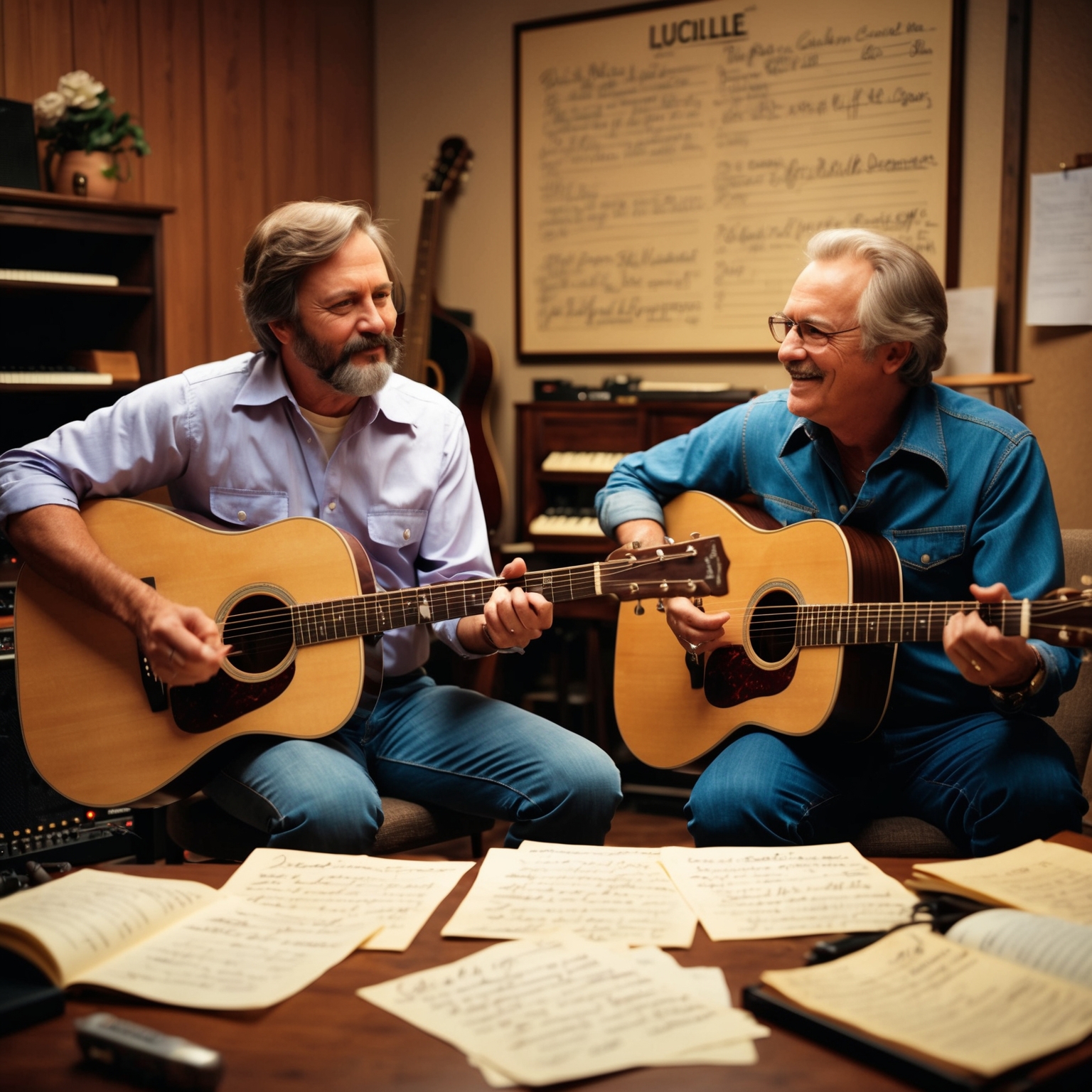
The song ‘Lucille’ was crafted by the talented duo of Hal Bynum and Roger Bowling, both of whom made indelible marks in the realm of country music. Hal Bynum, born in 1934, hailed from Texas and was well-known for his ability to tell poignant stories through his songs. With his roots deeply embedded in the traditions of country music, Bynum brought a sense of authenticity and emotional depth to the tracks he worked on. His career in songwriting took flight in Nashville, where he penned a series of hits that showcased his mastery of the craft.
Roger Bowling, on the other hand, was a Kentucky native whose songwriting career flourished in the mid to late 1970s. Bowling’s knack for creating narrative-driven pieces made him a sought-after composer in the industry. Known for his versatility, Bowling navigated various country styles, infusing them with a unique narrative richness that resonated with audiences and critics alike. His collaborations with artists like Billie Jo Spears further solidified his status as a distinguished composer.
The partnership of Bynum and Bowling for ‘Lucille’ was serendipitous. Together, they wove a compelling tapestry of melody and narrative that conveyed the emotional turbulence and vivid storytelling that the song is known for. The haunting composition and vivid lyrical content worked hand-in-hand to deliver a piece that tapped into universal themes of loneliness and relational despair. Their combined efforts were pivotal, without which ‘Lucille’ might not have achieved its iconic status in Kenny Rogers’ discography.
The Resounding Echoes of ‘Lucille’: Awards, Covers, and Cultural Imprints
Discover the awards and cultural impact of Kenny Rogers’ ‘Lucille,’ including Grammy wins, notable covers, and its presence in film and television.

First released in 1977, Kenny Rogers’ hit song ‘Lucille’ swiftly carved its niche in the country music scene, bringing home a slew of awards and nominations. This ballad about love and betrayal resonated with audiences worldwide, solidifying Rogers’ status in the industry. Among its accolades, ‘Lucille’ earned the Grammy Award for Best Male Country Vocal Performance in 1978, one of the most prestigious honors in the music world. Its lyrical depth and emotional resonance captured the judges’ hearts, etching Rogers’ name firmly into the annals of country music history.
Beyond its Grammy win, ‘Lucille’ also garnered nominations and won awards at other significant music award platforms, such as the CMA Awards, where it cemented Kenny Rogers as a household name. Not just limited to awards, the song also enjoyed numerous cover versions by artists from different genres, showcasing its universal appeal. Most notably, country star Waylon Jennings delivered his rendition of ‘Lucille,’ infusing it with his distinctive vocal style, while other artists like Don Williams and even rock legend Joe Cocker tried their hand at interpreting the classic tune.
Moreover, ‘Lucille’ transcended the realm of music charts, finding its place in pop culture through various media appearances. It was featured in film soundtracks and television series, allowing new generations to discover its charm. The song’s enduring popularity is dovetailed with Kenny Rogers’ remarkable ability to craft stories through music, giving ‘Lucille’ a life far beyond its initial release. This testament to its lasting significance exemplifies Rogers’ impact on both country music and popular culture.
Chart Triumphs of ‘Lucille’
Kenny Rogers’ ‘Lucille’ achieved impressive chart success, peaking at number 1 on the Billboard Hot Country Singles chart and reaching number 5 on the Billboard Hot 100.
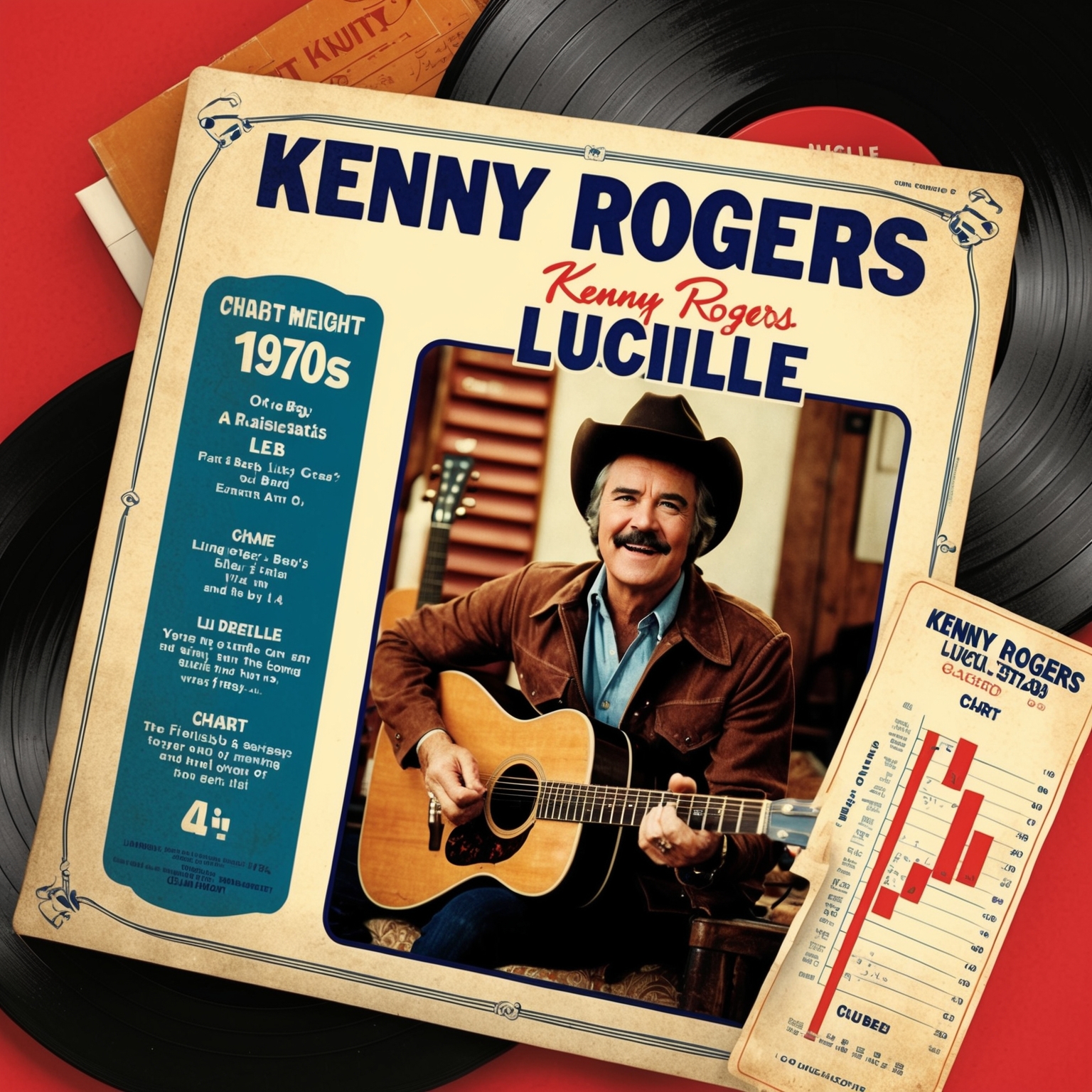
When Kenny Rogers released ‘Lucille’ in 1977, it marked a seminal moment in his career and in the music charts of the time. The song quickly climbed the charts, securing a spot as one of Rogers’ most celebrated hits. Originally debuting on January 24, 1977, ‘Lucille’ first appeared on the country charts, showcasing its immediate appeal to a wide audience. As weeks progressed, it became evident that the song was resonating deeply with listeners. It peaked at number 1 on the Billboard Hot Country Singles chart, cementing its place in country music history.
Beyond its success on the country charts, ‘Lucille’ also breached the mainstream pop scene, climbing to number 5 on the Billboard Hot 100. This transition highlighted Kenny Rogers’ crossover appeal, allowing him to attract fans from both country and pop music realms. Compared to other tracks at the time, ‘Lucille’ stood out not just for its catchy melody but also for its storytelling prowess, setting it apart in a crowded music market.
The impact of ‘Lucille’ was further amplified through strategic marketing and promotion. The song’s catchy chorus and relatable narrative were key components in its promotional campaigns. Rogers’ soulful performances on television shows and the vigorous support by his label undoubtedly contributed to its widespread acclaim. Fans and critics alike praised the song for its emotional depth and Rogers’ powerful delivery, which only fueled its popularity across radio stations and live performances.
The Visual Journey of Kenny Rogers’ ‘Lucille’
Despite lacking an official music video, ‘Lucille’ by Kenny Rogers enjoys popular fan videos and live performances that capture its emotive storytelling.

While “Lucille” by Kenny Rogers lacks an official music video that might typify visual accompaniments today, the song has seen numerous interpretations through fan-created videos and memorable live performances. These creative endeavors have played a significant role in keeping the song’s narrative fresh for old and new audiences alike, contributing to its enduring presence in popular culture.
Fans have taken the poignant storytelling of “Lucille” and turned it into visual narratives, enhancing the emotional experience of the song. These videos often explore the themes of love, loss, and infidelity that are so pervasive in the lyrics, providing viewers with a deeper connection to the song’s message. By visually representing the storyline, these fan videos serve as a unique form of tribute to the timeless nature of Kenny Rogers’ work.
Equally important are the live versions of “Lucille” that Kenny Rogers performed over the years. These performances often transcended the original studio recording in emotional weight, thanks to Rogers’ compelling stage presence. Whether accompanied by his renowned band or performing solo, Rogers had the ability to command the attention of his audience, drawing them into the story of “Lucille” with every note. These live renditions have been documented and shared widely, further cementing the song’s legacy and showcasing Rogers’ prowess as both a storyteller and live performer.
Analyzing the Musical Landscape of ‘Lucille’
Lucille’ by Kenny Rogers, a remarkable ballad set in the key of C major, features a steady verse-chorus structure and memorable melody. Its instrumentation blends acoustic guitar, piano, bass, and percussion, enhancing its rich emotional storytelling within Rogers’ discography.

‘Lucille’ by Kenny Rogers is a poignant ballad that carries with it a timeless musical structure characteristic of the 1970s’ country and soft rock genres. At its core, the song is primarily set in the key of C major, providing a warm and accessible foundation that resonates well with Rogers’ smooth baritone voice. The song employs a classic verse-chorus form, which alternates between storytelling narratives and an emotionally charged chorus that captures the listener’s attention.
The chord progression in ‘Lucille’ is predominantly straightforward, typically revolving around the I-IV-V chords, which are common in country music due to their simplicity and strong harmonic relationships. This simplicity allows the spotlight to remain on the lyrical content, as the music beautifully underscores the song’s narrative themes of loneliness and heartache. The tempo is moderate, maintaining a steady pace that complements the song’s reflective and somewhat somber mood.
This track is marked by its melody, which is smooth and memorable, crafted to match the storytelling nature of the lyrics. The harmony is relatively uncomplicated but effective, achieved through subtle vocal layering and instrumental backings that enhance the song’s emotional depth. The rhythm section, although understated, provides a steady groove that anchors the song, allowing the lyrics and melody to take center stage.
Instrumentally, ‘Lucille’ features a blend of acoustic guitar, piano, bass, and light percussion, all of which create a rich yet unobtrusive backdrop. The acoustic guitar, in particular, plays a pivotal role in establishing the song’s country roots, while the piano adds a layer of melodic warmth. This combination of instruments yields a timeless sound that aligns well with the song’s emotional and narrative thrust. Additionally, the production quality reflects the era’s aesthetic, with a clean, unembellished sound that accentuates Rogers’ vocal delivery.
In the context of Kenny Rogers’ discography, ‘Lucille’ represents a significant milestone, marking his emergence as a leading voice in the country music scene. Compared to his earlier works, this song showcases a maturation in thematic content, focusing on more poignant storytelling and emotional depth. ‘Lucille’ set the stage for Rogers’ subsequent hits, demonstrating a shift towards more narrative-driven songs that would become a hallmark of his career.
The recording of ‘Lucille’ took place in Nashville, known as the heart of country music. Produced by Larry Butler, the session is remembered for its focus on capturing the genuine emotional weight of the lyrics. Anecdotes from the studio reveal a keen attention to detail in achieving the perfect balance between vocals and instrumentation, resulting in a track that has endured in both country and mainstream music.
Decoding Heartache and Choices in ‘Lucille’
Dive into the compelling lyrics of ‘Lucille’ by Kenny Rogers, exploring themes of heartache, narrative depth, and effective literary devices.
Across from the depot
On a barstool, she took off her ring
I thought I’d get closer
So I walked on over
I sat down and asked her, her name
When the drinks finally hit her
She said, “I’m no quitter”
But I finally quit living on dreams
I’m hungry for laughter
And here ever after
I’m after whatever the other life brings
In the mirror I saw him
And I closely watched him
I thought how he looked out of place
He came to the woman
Who sat there beside me
He had a strange look on his face
…
******* This Lyrics is NOT for Commercial use *******

Kenny Rogers’ song Lucille weaves a poignant narrative centered around themes of heartbreak, choices, and the harsh realities of life. The lyrics are rooted deeply in personal experiences and emotional conflict, resonating with anyone who has faced moments of difficult decisions or unfulfilled dreams. Released in 1977, Lucille captures a snapshot of socio-cultural nuances of its time, reflecting a world where personal aspirations often clashed with familial and social expectations.
At its core, Lucille tells a vivid story through its lyrics, narrated from a first-person perspective. The setting is evocatively portrayed – a bar in Toledo, where the narrator encounters a woman who is clearly at a crossroads in her life. This narrative style builds a palpable sense of intimacy and immediacy, allowing listeners to journey alongside the characters. As the story unfolds, the lyrics carve a narrative arc that encapsulates a moment of revelation and confrontation, where life’s disappointments and desires are laid bare.
The use of literary devices in Lucille is subtle yet effective. The lyrics employ metaphors and vivid imagery to evoke emotions and paint a scene that is both relatable and haunting. Phrases like ‘finally quit living on dreams’ employ metaphor to convey a sense of resignation. The recurring theme of the bar setting serves as a metaphorical crossroads where lives intersect and diverge, capturing the universal human experience of searching for meaning and connection. Moreover, the song’s language is straightforward yet impactful, contributing to its emotional weight and relatability. This simplicity ensures that the message is accessible to a broad audience, amplifying its impact.
Throughout the years, Lucille has remained a staple in cultural and musical discussions, with its lyrics continuing to evoke strong emotional reactions. Whether it be the raw depiction of life’s trials or the universal longing for something more, the song’s lyrical portrayal of human struggles is timeless, allowing it to maintain an enduring connection with audiences across generations.
⭐️ Did you know? Kenny Rogers’ Lucille was written on a napkin in a diner! 🎶 This iconic tune became his breakout hit, hitting #1 in 1977! 🏆 #CountryClassic https://bit.ly/3Vn4iEm
Click to Tweet

